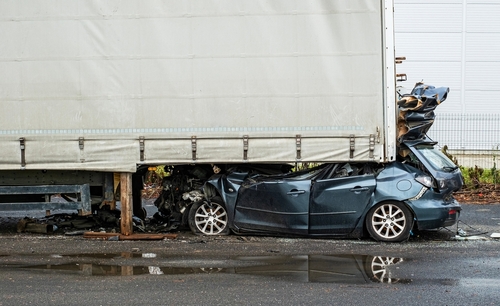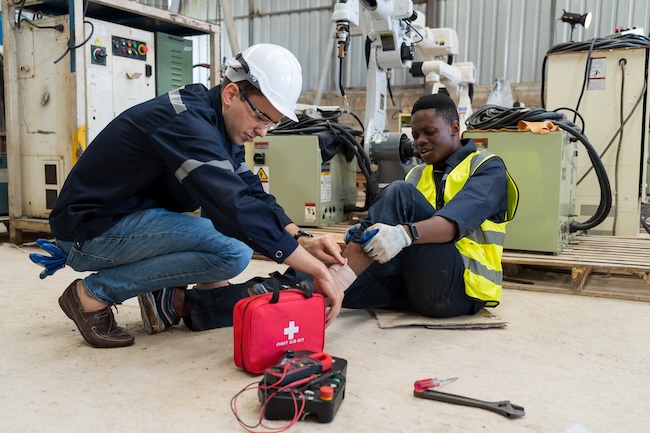The Truck Driver’s Role in Accidents
Truck drivers play a crucial role in determining liability in a truck accident case. Their actions and decisions directly impact the safety of the roads. Understanding the common forms of driver negligence is essential in assessing accountability. If you were held liable in a Georgia truck accident case contact us today.
Common Forms of Driver Negligence
Truck drivers can exhibit negligence in several ways. Common forms include:
- Distracted driving: This can involve using a mobile phone, eating, or adjusting the radio while driving.
- Speeding: Exceeding the speed limit can lead to severe accidents due to reduced reaction time.
- Aggressive driving: Tailgating, weaving in and out of traffic, and road rage can increase the risk of collisions.
Each of these behaviors can contribute to an accident, making the driver liable for damages.
Violations of Federal Hours-of-Service Regulations
Truck drivers must adhere to federal hours-of-service regulations. These rules limit the number of hours a driver can operate a commercial vehicle without rest. Violating these regulations can lead to driver fatigue, significantly increasing the likelihood of an accident. If a driver is found to have exceeded these limits, it strengthens the case for liability against them.
Impact of Impaired Driving on Liability
Impaired driving is another critical factor. If a truck driver operates their vehicle under the influence of drugs or alcohol, they are likely to be held liable for any resulting accidents. Impairment affects judgment, reaction times, and overall driving ability, making it a significant contributor to accidents. Law enforcement often conducts sobriety tests at the scene, and positive results can lead to criminal charges, further establishing liability.
In summary, the truck driver’s actions are central to determining liability in a Georgia truck accident case. Their negligence, violations of regulations, and impairment can all contribute to accidents, making them the primary parties responsible for damages. Understanding these factors is crucial for victims seeking compensation.
Liability of Trucking Companies
In Georgia, trucking companies can be held liable for accidents involving their drivers. Understanding the concept of vicarious liability is crucial in these cases. This legal principle means that employers are responsible for the actions of their employees while they are performing their job duties. If a truck operator causes an accident while driving for their employer, the trucking company may share liability for the damages.
Understanding Vicarious Liability
Vicarious liability holds trucking companies responsible for the negligent actions of their drivers. If a truck operator is found to be at fault for an accident, the trucking company may also be liable for the resulting injuries and damages. This liability encourages trucking businesses to employ responsible drivers and maintain safe driving practices.
Federal Safety Regulations and Company Accountability
Trucking businesses must comply with federal and state safety regulations. These regulations cover various aspects, including vehicle maintenance, driver qualifications, and hours of service. If a trucking company violates these regulations, it may be held accountable for any accidents that result. For example, if a company fails to ensure that its trucks are properly maintained and a mechanical failure leads to an accident, the company can be liable for damages.
In summary, trucking businesses play a significant role in determining liability in Georgia truck accident cases. By understanding vicarious liability, the consequences of negligent hiring and training, and the importance of adhering to safety regulations, victims can better navigate their legal options and seek fair compensation for their injuries.
Multiple Party Liability in Truck Accidents
In Georgia, joint parties can be held liable in a truck accident case. Understanding how fault is distributed among these parties is crucial for victims seeking compensation. Liability may extend beyond just the truck driver.
The Role of the Truck Driver
The truck driver is often the first party considered in a truck accident in a Georgia case. If the driver acted negligently, such as by speeding, texting, or driving under the influence, they can be held responsible for the accident. Their actions directly contribute to the accident and the resulting injuries.
The Trucking Company’s Responsibility
Trucking businesses can also be liable for accidents. Under the principle of vicarious liability, a company may be responsible for the actions of its employees while they are performing their job duties. If a trucking company failed to properly hire, train, or supervise their drivers, they may share liability. This includes issues like negligent hiring practices or not adhering to federal safety regulations.
Other Potential Liable Parties
In addition to the driver and the trucking company, other parties may be liable in a truck accident case. These can include:
- Maintenance Providers: If a truck was not properly maintained, a maintenance provider may share liability.
- Cargo Loaders: Improperly loaded cargo can lead to accidents. If loaders fail to secure cargo correctly, they may be held liable.
- Manufacturers: If a truck or its parts are defective, the manufacturer may be responsible for any resulting accidents.
Determining Fault
Georgia follows a modified comparative negligence rule. This means that if joint parties share fault, each party’s liability is proportional to their degree of fault. For example, if a jury finds that the truck driver was 70% at fault and the trucking company was 30% at fault, any damages awarded to the victim will be divided accordingly.
Understanding multiple party liability in truck accidents is crucial for victims. It helps ensure that all responsible parties are held accountable, maximizing the chances of recovering fair compensation.
Importance of Thorough Accident Investigation
A thorough accident investigation is vital in determining who can be held liable in a Georgia truck accident case. This process involves collecting and analyzing evidence to establish the facts surrounding the accident.
Gathering Evidence to Prove Liability
Evidence plays a crucial role in proving liability in truck accident cases. Key types of evidence include:
- Accident Scene Photos: Images of the crash site can show vehicle positions, road conditions, and any visible damages.
- Witness Statements: Accounts from people who witnessed the accident can provide valuable insights into what happened.
- Black Box Data: Many commercial trucks have black boxes that record data such as speed, braking, and driver actions leading up to the accident.
- Maintenance Records: These documents can reveal if the truck was properly maintained or if any mechanical failures contributed to the accident.
Collecting this evidence promptly is essential. Delays can lead to loss of critical information, making it harder to prove liability.
Benefits of Working with an Experienced Truck Accident Attorney
Engaging an experienced truck accident attorney can significantly impact your case outcome. Their expertise in personal injury law, specifically in truck accident cases, provides a strong advantage. Here are some key benefits of working with a Georgia truck accident attorney:
Understanding of Trucking Regulations
Truck accident attorneys are well-versed in federal and state regulations governing the trucking industry. They know how these laws apply to your case. This understanding helps in identifying violations that may have contributed to the accident. For example, if a trucking company failed to adhere to safety standards, the truck accident attorney can use this information to strengthen your claim.
Proving Liability
Determining liability in truck accidents can be complicated. An experienced truck accident attorney knows how to establish fault among joint parties, including the truck driver, trucking company, or even vehicle manufacturers. They will work to collect and present evidence that clearly shows who is responsible for the accident.
Negotiating with Insurance Companies
Insurance companies often seek to minimize payouts. A personal injury attorney can negotiate on your behalf to ensure you receive a fair settlement. They understand the tactics used by insurance companies and can counter their strategies effectively. This knowledge can lead to better settlement offers.
Maximizing Compensation
A truck accident lawyer will assess all aspects of your case to determine the full extent of your damages. This includes:
- Medical expenses: Current and future medical costs related to the accident.
- Lost wages: Compensation for time missed from work due to injuries.
- Pain and suffering: Non-economic damages that account for emotional distress and loss of quality of life.
Navigating the Legal Process
The legal process can be overwhelming, especially for those unfamiliar with it. An experienced truck accident attorney will guide you through every step, from filing a claim to representing you in court if necessary. They will handle all paperwork, deadlines, and court appearances, allowing you to focus on recovery.
In summary, working with an experienced truck accident attorney provides invaluable support in navigating the complexities of your case. Their knowledge, skills, and dedication can help you secure the compensation you deserve while alleviating the stress of the legal process.









